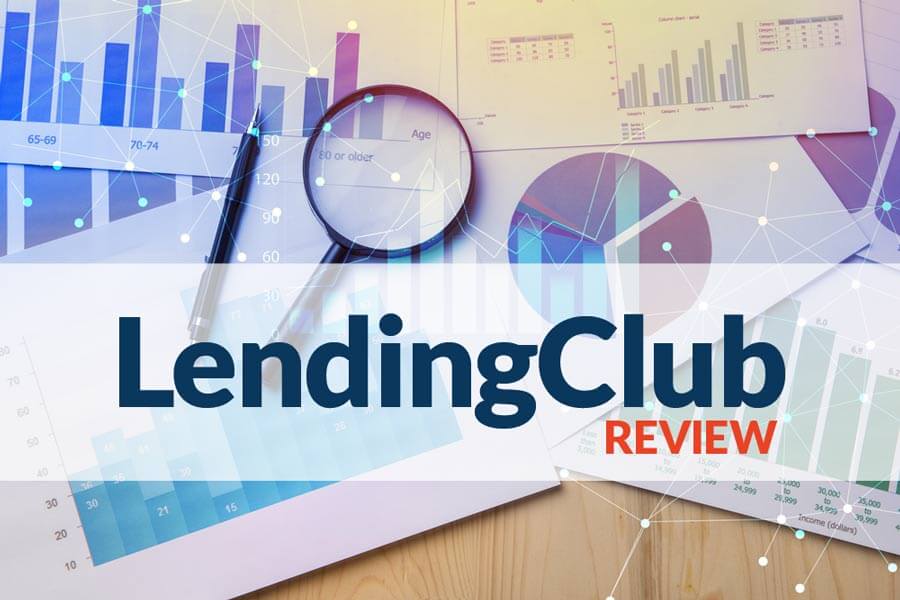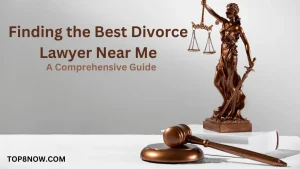
Liability insurance is a crucial aspect of risk management for individuals and businesses alike. In the United States, where legal disputes and litigation are common, having liability insurance coverage can provide financial protection and peace of mind. Whether you’re a small business owner, a professional offering services, or an individual concerned about potential lawsuits, understanding liability insurance in the USA is essential. This article will guide you through the various aspects of liability insurance, its importance, and how to obtain the right coverage for your specific needs.
Introduction to Liability Insurance
Definition and Purpose
Liability insurance is a form of coverage that protects individuals and businesses from financial loss resulting from claims or lawsuits filed against them for damages caused to others. It provides financial support for legal defense costs, settlements, or judgments awarded to the injured party. Liability insurance is designed to mitigate the risk of substantial financial loss and bankruptcy due to legal liabilities.
Types of Liability Insurance
Liability insurance encompasses various types of coverage tailored to different needs. The most common types include general liability insurance, professional liability insurance, product liability insurance, and commercial liability insurance. Each type addresses specific risks and provides coverage against different scenarios.
Understanding General Liability Insurance
Coverage and Benefits
General liability insurance, also known as commercial general liability insurance (CGL), offers protection against claims related to bodily injury, property damage, and personal injury. It covers legal defense costs, medical expenses, settlements, and judgments. General liability insurance is essential for businesses, as it safeguards against common risks and accidents that may occur on their premises or as a result of their operations.
Common Exclusions
While general liability insurance provides broad coverage, there are certain exclusions to be aware of. These exclusions may include intentional acts, professional negligence, and some types of property damage. It’s crucial to review policy exclusions carefully and consider supplemental coverage if needed to ensure comprehensive protection.
Professional Liability Insurance for Service Providers
Importance of Professional Liability Insurance
Professionals who provide services to clients, such as doctors, lawyers, architects, and consultants, face unique liability risks. Professional liability insurance, also known as errors and omissions (E&O) insurance, protects against claims of negligence, errors, or omissions in professional services. It covers legal defense costs, settlements, and judgments, helping professionals safeguard their reputation and financial stability.
Coverage for Different Professions
Each profession may require specialized professional liability coverage tailored to its unique risks. For example, medical malpractice insurance is crucial for healthcare professionals, while lawyers may need legal malpractice insurance. Professional associations and industry-specific insurers often offer tailored coverage options to meet the specific needs of different professions.
Product Liability Insurance for Manufacturers and Distributors
Ensuring Product Safety and Protection
Product liability insurance is essential for manufacturers, distributors, and retailers involved in the production and sale of goods. It provides coverage against claims arising from injuries or property damage caused by defective products. Product liability insurance helps protect businesses from costly legal battles, ensuring they can continue operating without severe financial consequences.
Coverage for Product-Related Claims
Product liability coverage typically includes protection against manufacturing defects, design defects, and failure to provide adequate warnings or instructions. It is vital for businesses to carefully assess their product liability risks and secure appropriate coverage to mitigate potential liabilities.
Commercial Liability Insurance for Businesses
Comprehensive Coverage for Business Risks
Commercial liability insurance offers broad protection for businesses against a wide range of risks, including bodily injury, property damage, advertising injuries, and legal liabilities. It combines general liability insurance with additional coverages specific to a particular business, industry, or profession. Commercial liability insurance is crucial for businesses of all sizes and sectors, helping safeguard their operations and assets.
Factors to Consider when Choosing Coverage
When selecting commercial liability insurance, businesses should evaluate their unique risks and consider factors such as policy limits, deductibles, endorsements, and additional coverages. Working with an experienced insurance agent or broker can help ensure businesses obtain the most suitable coverage for their specific needs.
Personal Liability Insurance for Individuals
Protection for Personal Assets
Personal liability insurance is designed to protect individuals from financial loss resulting from claims or lawsuits filed against them. It covers bodily injury, property damage, and personal injury liabilities arising from various situations, such as accidents on personal property or incidents involving pets. Personal liability insurance provides an additional layer of protection beyond standard homeowners or renters insurance policies.
Coverage in Various Situations
Personal liability insurance can offer coverage both at home and outside, providing protection in scenarios like car accidents or accidents occurring while participating in certain recreational activities. It is essential for individuals to review their existing insurance policies and consider adding personal liability coverage to ensure adequate protection.
Choosing the Right Liability Insurance Coverage
Assessing Risk Exposure
Before purchasing liability insurance, it’s crucial to assess the specific risks faced by your business or personal circumstances. Conducting a risk assessment helps identify potential liabilities and determine the appropriate coverage types and limits needed for comprehensive protection. Professional insurance advisors can assist in evaluating risk exposures accurately.
Evaluating Coverage Options
With numerous insurance providers offering liability coverage, it’s important to evaluate policy terms, conditions, and coverage limits. Comparing multiple quotes and understanding the specific coverage provided is essential to make an informed decision. It’s also advisable to consider the financial strength and reputation of insurance companies before selecting a provider.
Understanding Policy Limits and Deductibles
Limits of Coverage
Liability insurance policies typically have two types of limits: per occurrence limit and aggregate limit. The per occurrence limit represents the maximum coverage amount available for a single claim or incident, while the aggregate limit denotes the maximum coverage available during the policy period for all claims combined. It’s crucial to assess your potential liabilities and select adequate coverage limits to avoid being underinsured.
Deductibles and Premiums
Liability insurance policies often include deductibles, which are the amounts policyholders must pay out of pocket before the insurance coverage kicks in. Higher deductibles usually result in lower premiums, while lower deductibles lead to higher premiums. Finding the right balance between deductibles and premiums depends on your financial situation and risk tolerance.
Filing a Liability Insurance Claim
Notifying the Insurer
In the event of a liability claim, it’s essential to notify your insurance provider as soon as possible. Most policies require prompt reporting of incidents or claims to initiate the claims process. Be prepared to provide detailed information about the incident, including dates, parties involved, and any relevant documentation or evidence.
Gathering Necessary Documentation
To support your liability insurance claim, gather all relevant documentation, such as incident reports, witness statements, photographs, medical records, or repair estimates. Maintaining accurate records and documenting the progression of the claim can strengthen your case and expedite the claims process.
Cost of Liability Insurance
Factors Influencing Premiums
Several factors influence the cost of liability insurance, including the type of coverage, policy limits, deductible amounts, industry or profession, claims history, and risk exposure. Insurance providers assess these factors to determine the level of risk associated with providing coverage, which directly affects the premium amount. Working with an insurance professional can help identify cost-saving opportunities without compromising coverage.
Tips for Cost Savings
To manage the cost of liability insurance, consider implementing risk management strategies, such as maintaining a safe work environment, implementing quality control measures, and training employees to mitigate potential risks. Additionally, bundling multiple policies with the same insurer or increasing deductibles can lead to lower premiums. Regularly reviewing coverage needs and shopping around for competitive quotes can also help identify cost-saving opportunities.
Liability Insurance Laws and Regulations in the USA
State-specific Requirements
Liability insurance requirements can vary by state and industry. Some states have specific mandates for certain professions or businesses, while others may only require liability coverage based on specific factors such as the number of employees or the type of services provided. It’s crucial to familiarize yourself with the laws and regulations of your state to ensure compliance with minimum insurance requirements.
Mandatory Insurance for Certain Industries
Certain industries, such as healthcare, construction, or transportation, may have mandatory liability insurance requirements imposed by regulatory bodies or licensing authorities. These requirements aim to protect the public and ensure that businesses operating in these sectors have adequate coverage to address potential liabilities.
Top Liability Insurance Providers in the USA
Company A
Company A is a leading provider of liability insurance in the United States. With a strong reputation for excellent customer service and comprehensive coverage options, Company A offers tailored solutions for individuals and businesses across various industries. They have a wide network of experienced agents who can assist in selecting the right coverage to meet specific needs.
Company B
Company B is another prominent insurance provider known for its extensive range of liability insurance offerings. They have a solid track record in delivering reliable coverage and exceptional claims handling. Company B’s commitment to customer satisfaction and competitive pricing makes them a popular choice among policyholders seeking comprehensive liability insurance solutions.
Company C
Company C has emerged as a trusted provider of liability insurance with a focus on personalized service and customized coverage options. They prioritize understanding the unique needs of their customers and offer tailored solutions for both individuals and businesses. Company C’s commitment to innovation and customer-centricity sets them apart in the competitive insurance market.
Frequently Asked Questions (FAQs)
1. What is the difference between liability insurance and professional liability insurance?
Liability insurance provides coverage for a broad range of liabilities, including bodily injury, property damage, and personal injury claims. On the other hand, professional liability insurance specifically protects professionals against claims related to errors, omissions, or negligence in the services they provide. It is essential for professionals in fields like healthcare, law, and consulting to have professional liability insurance to address the unique risks associated with their professions.
2. Is liability insurance tax deductible for businesses?
In many cases, liability insurance premiums are tax-deductible for businesses. However, it is important to consult with a tax advisor or accountant to understand the specific tax regulations and eligibility criteria in your jurisdiction. They can provide guidance on what expenses are deductible and help maximize your tax benefits.
3. Can I cancel my liability insurance policy at any time?
Most liability insurance policies allow policyholders to cancel their coverage, but the process and potential penalties may vary. It’s crucial to review the terms and conditions of your policy and contact your insurance provider to understand the cancellation process, any applicable fees, and potential consequences before making a decision.
4. Are there any liability insurance options for individuals who work from home?
Yes, individuals who work from home can consider adding liability coverage to their homeowners or renters insurance policies. Home-based business insurance or a separate personal liability insurance policy can provide additional coverage for liabilities related to business activities conducted from home. It’s advisable to discuss your specific needs with an insurance professional to ensure adequate protection.
5. Does liability insurance cover claims from previous years?
Liability insurance typically covers claims that occur during the policy period. However, some policies may include a retroactive date, which extends coverage to claims arising from incidents that occurred before the policy’s start date. It’s important to review the terms of your policy and consult with your insurance provider to understand the coverage provided for claims from previous years.
Conclusion
Liability insurance is an essential tool for individuals and businesses to protect themselves from the financial consequences of lawsuits and claims. Understanding the various types of liability insurance, evaluating coverage options, and selecting the right policy for your specific needs is crucial. By securing adequate liability insurance coverage, you can mitigate the risks associated with potential liabilities and safeguard your financial stability.
Remember, insurance requirements and regulations may vary depending on your state and industry. Therefore, it’s important to stay informed and comply with the specific insurance obligations relevant to your circumstances. To make an informed decision, consult with reputable insurance providers, assess your risk exposure accurately, and choose coverage that provides comprehensive protection against potential liabilities.
Frequently Asked Questions (FAQs)
1. What is the difference between liability insurance and professional liability insurance?
Liability insurance provides coverage for a broad range of liabilities, including bodily injury, property damage, and personal injury claims. On the other hand, professional liability insurance specifically protects professionals against claims related to errors, omissions, or negligence in the services they provide. It is essential for professionals in fields like healthcare, law, and consulting to have professional liability insurance to address the unique risks associated with their professions.
2. Is liability insurance tax deductible for businesses?
In many cases, liability insurance premiums are tax-deductible for businesses. However, it is important to consult with a tax advisor or accountant to understand the specific tax regulations and eligibility criteria in your jurisdiction. They can provide guidance on what expenses are deductible and help maximize your tax benefits.
3. Can I cancel my liability insurance policy at any time?
Most liability insurance policies allow policyholders to cancel their coverage, but the process and potential penalties may vary. It’s crucial to review the terms and conditions of your policy and contact your insurance provider to understand the cancellation process, any applicable fees, and potential consequences before making a decision.






